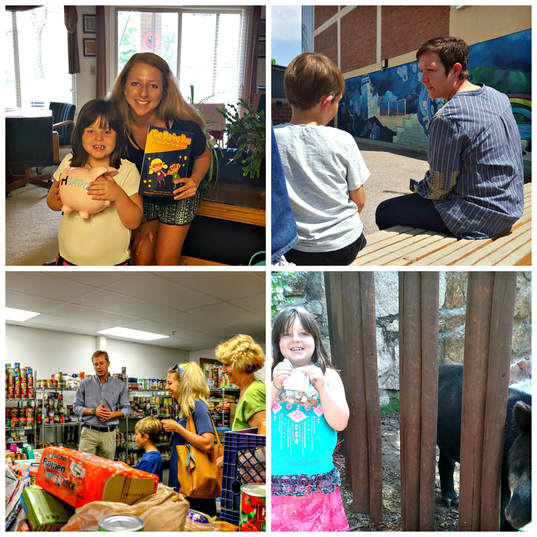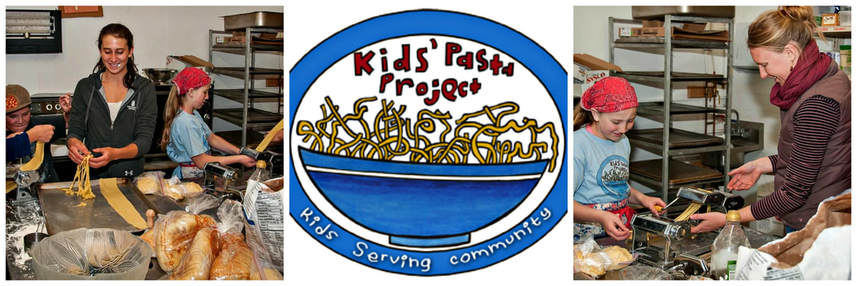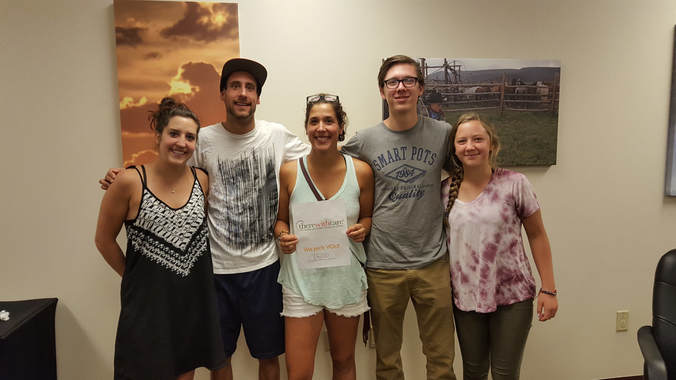|
Learn more about ways to engage your family in philanthropy as we reflect on our youth philanthropy programming. Who is Involved:
History of Youth Engagement: Three years ago, our family foundation came to a dramatic juncture in our organizational lifecycle and purpose. At the time, Moniker Foundation was simple. Scholarships to needy students and grants to organizations close to the Board’s heart. Knowing this philanthropic purpose, the Board set out to learn if they had more road to pave. So, we embarked down the road of strategic planning. Mission, vision, and desired impact were mapped, asked, answered, and evaluated. The most important question the Board had to answer was, “Do we want Moniker to last into perpetuity or should we sunset it?” Moniker became slated for perpetuity. With this pinpointed, we needed to determine how to accomplish this? Two paths formed – work from within the family or hire externally. The Board valued utilizing Moniker as the glue to hold the family together and carry on the family legacy, so we decided to chip away at an internal, family-forward, framework. I am the first paid staff and the first member of the third generation to be involved at a higher level. I was tasked to piece together the Board’s goal of next generation, and greater family, involvement. Our framework came together fulfilling two purposes – intentionality and flexibility. We are concrete and thoughtful in our Scholarship Program and Competitive Grants Program, yet we are flexible in our Family Giving Program. I’d like to reflect on our Family Giving Program, especially our Philanthropy for all Ages Program. It is a tiered approach for ages 6 to 18+. Philanthropy that is simple. Philanthropy that focuses on relationships and experiences. Philanthropy that seeks to spark an intrinsic value so that young family members are eager, excited, and self-selecting their involvement once they become adults. Current Youth Engagement Strategies: Ages 6 -10: Feed the Piggy - Save, Grow, Give Children receive a Moniker piggy bank along with our very own book about philanthropy, The Daring Duo: A Story of Two True Super Heroes. For every $1 saved, Moniker matches $10, up to $500. At the end of the year, the child chooses where they would like to give the money. This is by far my favorite program of Moniker. It’s heart-warming and inspiring. Too often we don’t ask children for their opinion. I have learned that children are smart, observant, and caring. My nephew, Wyatt, decided to donate his first piggy to homeless children. We took Wyatt, with his bag full of shiny coins, to visit Urban Peak – an organization serving just that, homeless youth. Wyatt received a tour of their shelter where the children sleep and eat. He learned about the chores that they complete for points which they can use towards various aspects during their stay. On the ride home, Wyatt pointed to people on the street asking if they were homeless youth. Every time I see him, he asks when he can go visit again. It melts my heart. Advice to Others:
Ages 10-15: Helping Hands Children engage in service-oriented projects. Moniker provides a $500 grant to the organization upon completion of the project. This program focuses on the second “t” in the tried and true philanthropy philosophy - time, talent, and treasures. By this age children have more than enough talents to share! And what’s even better, they know what their talents are and they want to be recognized for them. This age is great for further exploring the world and how one can contribute to it. My cousin Liza lives in a small, rural community in Colorado. Liza, not shy about helping others, volunteered her time with Kids Pasta Project –an organization that prepares and sells freshly-made, healthy meals and in turn gives the profits to local causes. Liza reflected on her experience by sharing, “The program gives us a way to serve our communities and further learn skills like cooking, serving, and hosting. When you get older you get to be a leader by helping each of the younger kids.” Advice to Others:
Ages 10-18: Juniors Juniors is our Junior Board program. Here members learn the components of grant-making by attending site visits, reading proposals, and presenting requests to the Board. Juniors are allocated $5,000 to give to one set of proposed organizations. This selection occurs once per year at our family reunion. The lessons, skills, and values taught in the earlier years are meant to come full circle through this program. It also acts as the mixing pot for the older ages. 10-year-olds have just as much value to bring to the conversation around impact and need as do the older kids. The older kids also get to showcase their leadership styles. Advice to Others:
Ages 18+: Familyship
Family members are eligible for a Board seat and/or a time-designated internship. Now family members are all grown up and ready to take on a real job in the world of philanthropy! From creating spreadsheets to researching feasible programming, the Familyship is built around the foundation’s workflows, family members’ passions, and their allotted time commitment. A few family members have completed this opportunity with Moniker. This program is the most time intensive program for the foundation’s staff as it requires tender love and care. Not only is it a resume-building opportunity for them, but it is a leadership opportunity for staff. Being a small-staffed foundation, we can often get in the mindset of one-man is best. Bringing other people to the table is refreshing, yet at times very challenging, which keeps everyone on their toes! Advice to Others:
Resources to Share Upon Request:
Download the article from the National Center for Family Philanthropy here. Comments are closed.
|
Archives
November 2017
Categories |




 RSS Feed
RSS Feed